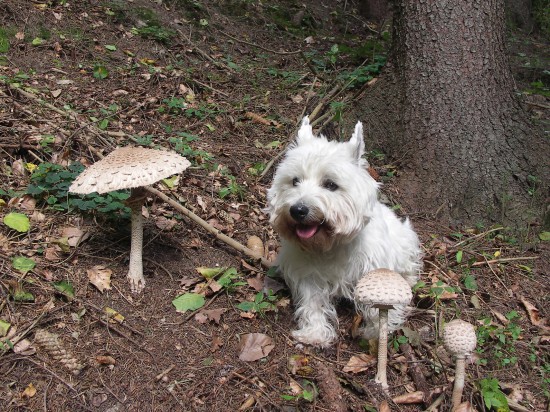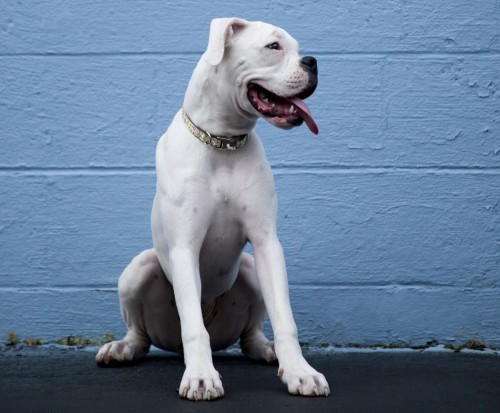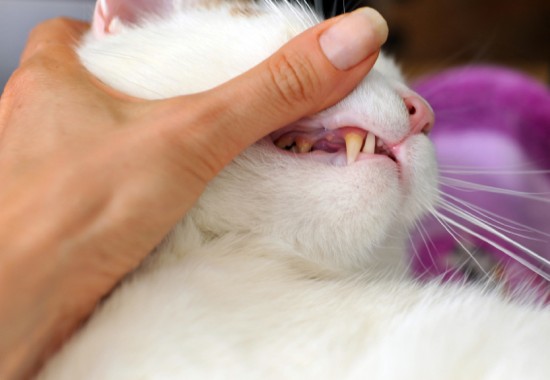

Despite what Alice in Wonderland might have taught us about eating strange mushrooms, most of us are well aware that many types of wild mushrooms can be poisonous, and that it is an incredibly bad idea to pick and eat wild mushrooms unless you are positive about your identification skills and know exactly what you are dealing with.
The same is true for dogs, and poisonous or toxic mushrooms can pose just as much of a hazard to your dog’s health as they can to your own; plus, dogs do not understand in the same way that we do that mushrooms growing wild may not be safe to eat! Particularly if you own a dog that is prone to scavenging or eating things that he finds out on his walks (a concept that many Labrador Retriever owners will be all too familiar with)! Mushrooms can pose a potential risk to your dog, and one that you may not even have realised existed.
If you are concerned about what your dog eats when out and about and want to know more about mushrooms and the dangers they can pose to your dog, read on to learn more about mushroom poisoning and toxicity in dogs.
The types of mushrooms that are safe for people to eat are generally not harmful to dogs, although they should not form part of your dog’s staple diet. So don’t panic if you are cooking something with supermarket bought mushrooms and your dog manages to scavenge a couple of dropped ones!
The vast majority of wild-growing mushrooms are also not harmful to dogs, and most wild mushrooms will not taste particularly palatable, so many dogs will simply avoid them and not think of them as a foodstuff. However, some wild mushrooms can prove toxic to both dogs and people, and with many different types of mushrooms looking very similar, identifying what is what can be difficult, even if you have a mushroom guidebook or reference resource to hand. Any wild mushroom should be considered as a potential risk to your dog if ingested, and you should never let your dog eat or snuffle around wild mushrooms or fungus of any type.
Your dog may come across mushrooms or other fungus growth when out on his walks, particularly around wooded areas or marshy grasslands and other environments that support a wide range of potential mushroom growths. You may even find that mushrooms grow wild within your own garden, and remember that many wild mushrooms are incredibly small and can be hard to spot if growing in the grass. Many dogs have a tendency to eat grass from time to time, and mushrooms can accidentally be ingested by your dog when eating grass.
Keep an eye out in your own garden for any mushrooms or similar fungi growing, and remove them from the garden for safe disposal if possible.
While many types of mushrooms are not harmful to dogs at all, those that do present a risk can range from the minor short-term sickness end of the scale right through to the extremely dangerous.
Mushroom toxicity is ranked from A-D in terms of seriousness:
The symptoms of mushroom poisoning can be varied and wide ranging, and the severity of the symptoms will depend on the type of mushrooms ingested and how much was eaten.
Be on the lookout for:
If you know or suspect that your dog has eaten wild mushrooms, this should be regarded as an emergency, even if your dog is not displaying any symptoms of sickness at first. You should contact your vet immediately, and if possible try to get a sample of the mushrooms that you know or suspect your dog ate to aid with diagnosis.
Your vet may wish to induce vomiting to remove any undigested mushrooms in the stomach and possibly take a sample for analysis, and will also likely run some blood and urine tests to detect the presence of toxins within the system. Your vet may administer activated charcoal to your dog if inducing vomiting is not viable, to bind any remaining toxic matter in the stomach and neutralise its potential to cause further harm.
Careful monitoring is needed to pre-empt the onset of liver or kidney problems, and deal with any other issues such as seizures or fits. IV fluid therapy may also be required in order to flush the toxins out of the system, and in extreme cases where the liver or kidneys are affected, dialysis or even a blood transfusion may be required.
If diagnosis is made quickly and treatment is sought promptly, the prognosis for dogs who have consumed toxic mushrooms is usually good. However, many other factors can affect this, including the quantity of mushrooms consumed and how toxic they were, as well as the overall health and condition of the affected dog.
Because liver and kidney problems may not present themselves for a couple of days after ingestion, careful inpatient monitoring is required to evaluate the condition of the liver and kidneys and react accordingly. As the toxic compounds of mushrooms do not remain in the body for very long, encouraging the body systems to flush themselves by means of administering fluids and encouraging urination can make a big difference towards the impact of ingestion upon your dog.
Don’t wait around if you suspect your dog has ingested wild mushrooms, or is showing any of the symptoms described above. Acting quickly can mean the difference between life and death for your dog, so be alert at all times and ready to act if needed.
 Common Reasons Why A Cat Might Refuse To Use A Litter Tray
Common Reasons Wh
Common Reasons Why A Cat Might Refuse To Use A Litter Tray
Common Reasons Wh
 Five Of The Worst Reasons For Considering Getting A Dog
Five Of The Worst
Five Of The Worst Reasons For Considering Getting A Dog
Five Of The Worst
 Dental Problems In Cats
Dental Problems I
Dental Problems In Cats
Dental Problems I
 Wobbler Syndrome In Dobermans
Wobbler Syndrome
Wobbler Syndrome In Dobermans
Wobbler Syndrome
 Build the Chicken Houses Like It Is Your Very Own
Build the Chicken Houses Like It Is Your Very Own
Build the Chicken Houses Like It Is Your Very Own
Build the Chicken Houses Like It Is Your Very Own
Copyright © 2005-2016 Pet Information All Rights Reserved
Contact us: www162date@outlook.com